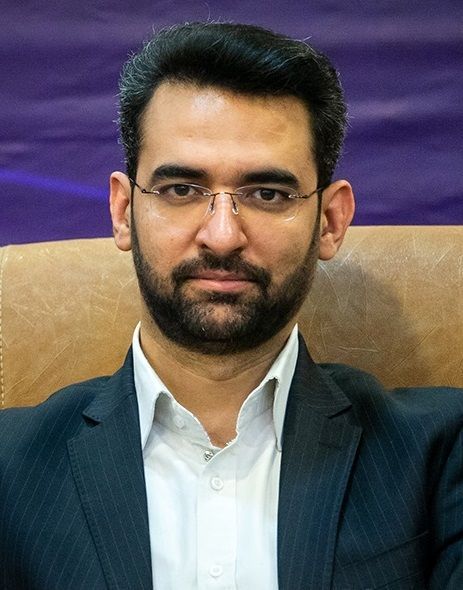WASHINGTON, Nov 22 (Reuters) – The United States imposed sanctions on Iran‘s information minister on Friday for his role in “widescale internet censorship,” a reference to a five-day-long nationwide shutdown meant to help stifle protests against fuel price hikes in Iran.
The internet blockage, which Iran said on Thursday it had begun to roll back, made it difficult for protesters to post videos on social media to generate support and also to obtain reliable reports on the extent of the unrest.

Author: Zoheir Seydanlo. CC BY 4.0
Mohammad Javad Azari-Jahromi, the Iranian minister, has advanced Tehran’s policy of “repressive internet censorship” while in office, according to the U.S. Treasury Department, which described him as a former intelligence official who has been involved in surveillance against opposition activists.
“Iran’s leaders know that a free and open internet exposes their illegitimacy, so they seek to censor internet access to quell anti-regime protests,” Treasury Secretary Steven Mnuchin said in a statement.
“We are sanctioning Iran‘s Minister of Information and Communications Technology for restricting internet access, including to popular messaging applications that help tens of millions of Iranians stay connected to each other and the outside world,” he added.
The sanctions block any Azari-Jahromi property under U.S. jurisdiction, the Treasury Department said in a statement, saying its regulations generally bar dealings by U.S. persons, or those transiting the United States, in such property.
On Thursday, Iranian media said the country’s National Security Council, which had ordered the shutdown, approved reactivating the internet gradually in some areas. Azari-Jahromi has pointed out in local media interviews that the shutdown was implemented by the council, possibly to avoid public criticism, but has said it was important for security reasons.
The youngest minister in Iranian President Hassan Rouhani’s cabinet, Azari-Jahromi reportedly has presidential ambitions, according to Iran analysts.
“We will hold members of the Iranian regime accountable for their violent repression of the Iranian people,” U.S. Secretary of State Mike Pompeo wrote in a tweet.
Demonstrations have spread across Iran since last week after the government announced gasoline price hikes of at least 50% and quickly turned political, with protesters demanding that top officials step down.
Tehran has blamed “thugs” linked to exiles and foreign foes – the United States, Israel and Saudi Arabia – for the unrest.
The protests in Iran come as the Iranian economy has been crippled by U.S. sanctions reimposed since President Donald Trump withdrew from Tehran’s 2015 nuclear deal with major powers.
(Reporting by Makini Brice and Daphne Psaledakis in Washington; Additional reporting by Babak Dehghanpisheh in Geneva and by Parisa Hafezi in Dubai. Writing by Arshad Mohammed and Daphne Psaledakis; editing by Tim Ahmann, Chizu Nomiyama and Jonathan Oatis)

